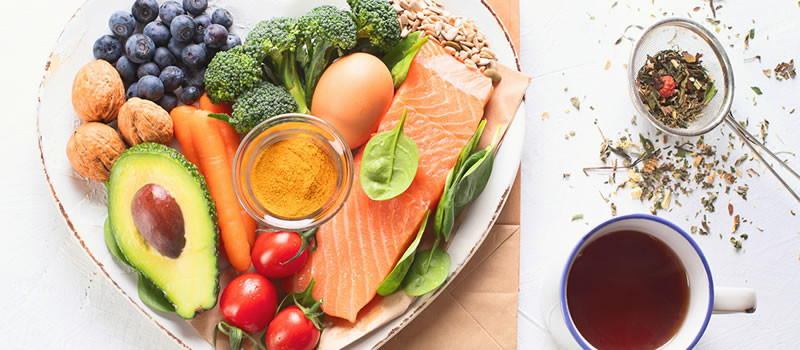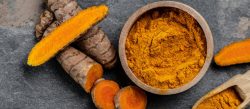Top 8 Foods for Brain Health
Published March 7, 2023

Why is what you eat important for brain health?
Good nutrition is imperative for healthy brain function. The brain consumes a huge amount of energy compared to the rest of the body and it has been shown what you eat influences the molecular systems that govern your mental health. To support cognition, concentration, memory and mood, your body needs healthy, unprocessed food.
Key nutrients for brain health
Certain nutrients are needed to not only nourish and protect your brain cells but also for to produce and modulate your neurotransmitters — which are responsible for sending signals throughout your brain. Some of these include:
- Omega-3 Fatty acids — The layer of fat that surrounds each brain cell contains high levels of a type of omega-3 fatty acid called DHA. Your body can’t make DHA, so you must get it in your diet.
- B Vitamins — B vitamins are a group of 8 water-soluble vitamins that work synergistically at a cellular level and are essential to brain function. Each B vitamin is unique and has specific roles within the body and they are essential for various metabolic processes.
- Magnesium —Magnesium is required for over 300 metabolic reactions, many of which are important for normal brain health and function. Magnesium can cross the blood-brain barrier to prevent the entry of stress hormones in the brain helping your body regulate the stress response.
- Coenzyme Q10 — Coenzyme Q10 (CoQ10) is needed for energy production and functions as an antioxidant to protect brain cells from oxidative damage. Our bodies can make CoQ10, but CoQ10 levels decline with age. Some medications also deplete CoQ10 in the body.
- Vitamin C —One of the highest concentrations of vitamin C in the body is found in the brain. Vitamin C is involved in the production of norepinephrine, a neurotransmitter that’s important for learning and concentration. Vitamin C is also an antioxidant and may help to reduce free radical damage to the body’s cells, including those found in the brain.
- Vitamin D — Vitamin D helps protect neurons and is an important nutrient for preserving cognition, particularly as we age.
- Iron — Iron is important for energy production and tissue oxygenation and has been shone to improve cognitive function in young women of varied iron status in a 2007 study.
8 foods for brain health
- Deep-sea oily fish — Fish such as salmon, tuna, trout and cod, and mollusks like mussels and oysters are a great source of DHA. For vegans and vegetarians, you can get your omega-3 fatty acids from avocado, flax seeds, chia seeds, walnuts, tofu.
- Legumes & Wholegrain cereals — Legumes and wholegrain cereals are a great source of B vitamins to support energy production and the synthesis of neurotransmitters in the brain.
- Tropical fruits & Berries — Tropical fruits like guavas and papaya and delicious berries are great sources of vitamin C and antioxidants to help protect the brain and support the synthesis of vital neurotransmitters
- Green tea –Swap one of your daily cups of coffee with green tea as it contains an amino acid called theanine, which produces a calming effect on the body while promoting an alert mental state.
- Chocolate –Flavonoids found in chocolate appear to have several actions on areas of the brain. The darker the chocolate, the better.
- Nuts & Seeds — Nuts, such as walnuts and almonds are a great source of Vitamin E, monounsaturated fats and minerals such as magnesium to help support brain health.
- Leafy green vegetables — Leafy green vegetables like spinach provide B vitamins, magnesium and iron and have been shown to boost brain health and improve cognition
- Turmeric — Curcumin, an antioxidant compound found in Turmeric, has been shown to have anti-inflammatory and antioxidant properties that may protect the brain and support cognitive function as we age. Just remember that Curcumin is fat-soluble, so eat your turmeric with a fat such as coconut milk.
Giving your brain the nutrients it needs through a healthy and varied diet will support mental health, cognition and concentration. A daily multivitamin may also be of benefit if your dietary intake is inadequate.
Learn about which Nature’s Own products can support memory, concentration and sleep.
Please visit your healthcare professional to discuss if supplements are right for you.
MAT-AU-2300291
Learn about which Nature's Own product may be appropriate for you.
SEE THE PRODUCTS HERE







